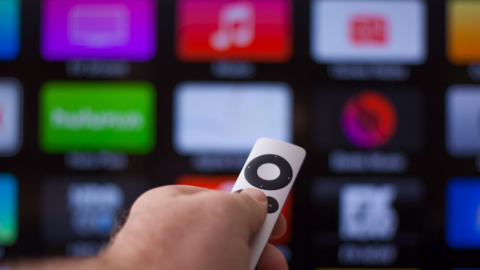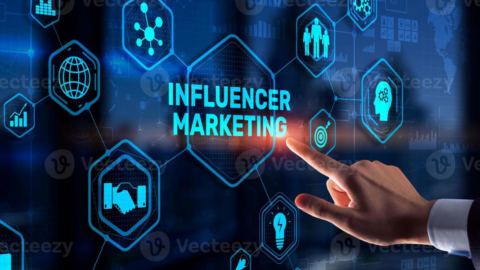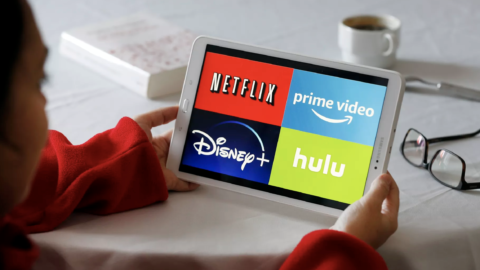Marketing has its own language. A stream of shorthands, buzzwords, acronyms, and initialisms. It’s practically a language in and of itself. Marketers should be hep to the lingo if they want to hang with the cool cats, daddy-o. Or something like that.
From brand positioning to user experience, this glossary covers marketing words every marketer should know. It’s in alphabetical order and ⌘/F or CTRL/F will help you find the answers you seek.
Affinity marketing
Targeting individuals based on their hobbies, interests, or lifestyle.
A/B testing
Comparing two versions of a website, email, landing page etc. to identify which performs better. Pro tip: go with the winner.
Brand awareness
Generally speaking, how familiar people are with a brand and its products (see also: unaided brand recall).
Brand identity
The mental images that come to mind when someone thinks about a brand, shared externally as logo, color palette, voice, slogan(s) etc.
Brand positioning
The way a brand or product is presented and perceived by consumers, possibly but not necessarily in relation to competitors.
Call-to-action (CTA)
A button, link, or piece of text that encourages a visitor to take a specific action, such as making a purchase or filling out a form.
Churn
Measured over a given time period and expressed as a percentage, churn is the rate at which customers stop doing business with a company, often by canceling a subscription or otherwise disengaging from a service. (see: retention)
Competitive analysis
Studying and comparing the products, services, and marketing strategies of a business’s competitors.
Conversion rate
The percentage of website visitors, email recipients etc. who take a desired action, such as making a purchase or filling out a form.
Customer acquisition cost (CAC)
The total cost of acquiring a new customer, including marketing, sales and other relevant expenses.
Customer journey
The complete experience of a customer with a brand, from awareness to consideration to purchase and beyond.
Customer loyalty
A customer’s willingness or desire to continue doing business with a brand over time.
Customer personas
Detailed profiles of a business’s ideal target customer(s), created to help guide marketing efforts and decision making.
Customer relationship management (CRM)
The practice of managing and analyzing customer interactions and data throughout the customer lifecycle in order to improve customer relationships and drive sales growth. Sometimes used as a short-hand for the software and services that help manage customer relationships, as in “HubSpot is the CRM we use.”
Content marketing
The creation and distribution of valuable, relevant, and consistent content in order to attract and retain a clearly defined audience, and ultimately drive profitable customer action.
Drip marketing
Sending a series of pre-written messages or emails to a targeted audience over a period of time. These messages are designed to educate, nurture and engage the audience with the ultimate goal of converting them into customers.
Earned media
Media coverage that is not paid for, typically achieved through public relations (PR) efforts.
Email marketing
Sending email to customers and potential customers to promote products or services, and build relationships.
Event marketing
The use of events, such as trade shows or product launches, to promote a brand or product.
FunneL
A visual representation of the customer journey, with the top of the funnel (“tofu”) representing awareness and the bottom (“bofu”) representing conversion.
Influencer marketing
The practice of partnering with individuals who have a large and/or dedicated following on social media or other platforms to promote a product or service.
Inbound Marketing
Marketing strategies that focus on attracting customers through content marketing, social media marketing, and search engine optimization (SEO).
Key performance indicators (KPIs)
Specific, measurable, achievable, relevant, and time-bound goals used to evaluate the success of a marketing campaign.
Keyword research
The process of identifying the terms and phrases that consumers use when searching for products or services online.
Lifetime value (LTV)
The predicted net profit a business will earn from a customer over the lifetime of their relationship with the company.
Lead generation
The process of attracting and acquiring potential customers for a business through various means.
Lead nurturing
The process of building relationships with potential customers through the sales funnel, in order to eventually convert them into paying customers.
Marketing automation
The use of software to automate marketing processes, such as email campaigns and social media posts.
Marketing mix
The combination of tactics and strategies used by a business to reach its marketing goals, including the 4Ps (product, price, promotion, place).
Marketing plan
A detailed document outlining the specific actions and resources required to achieve marketing goals and objectives.
Marketing strategy
A long-term plan for achieving marketing goals and objectives.
Organic search
Unpaid search engine results that are based on the relevance and authority of a website.
Outbound marketing
Traditional marketing techniques that involve actively reaching out to potential customers, such as through TV or radio commercials, direct mail, or telemarketing.
Pay-per-click (PPC) advertising
An online advertising model in which advertisers pay each time a user clicks on one of their ads.
Product
A tangible or intangible item that is offered to a market for attention, acquisition, use, or consumption.
Public relations (PR)
Efforts to manage the spread of information and shape the message between an organization and the public.
Retention
Efforts to increase customer lifetime value, reduce customer churn and foster long-term customer relationships. Good customer service, personalized and relevant communication, loyalty programs or exclusive offers or discounts can help retention efforts.
Remarketing
The practice of targeting ads to users who have already visited a website or engaged with a brand in some way.
Return on investment (ROI)
A measure of the profitability of an investment, calculated by dividing the return on an investment by the cost of the investment.
Search engine marketing (SEM)
The practice of promoting a website through paid search engine results.
Search engine optimization (SEO)
The practice of optimizing a website to improve its ranking in search engine results pages.
Search engine results page (SERP)
The webpage displayed by a search engine in response to a query by a user. Typically includes a list of relevant webpages and other content such as images, videos, and news articles.
Social media marketing
The use of social media platforms to connect with and engage customers, and promote products or services.
Target market
The specific group of consumers that a business is attempting to reach with their marketing efforts.
Unaided recall
How likely someone is to spontaneously remember a brand without any external cues or prompts. Typically assessed with surveys asking people to list all the brands they can think of in a particular category.
User experience (UX)
The overall experience of a person using a product or service, including the interface, usability, and functionality.
User interface (UI)
The part of a product or service that a user interacts with, including the layout, visual design, and navigation.
BENlabs can help
BENlabs partners brands and influence content creators in smart partnerships where everyone involved wins. If you’re looking to create an influence marketing campaign that converts, let’s talk.





